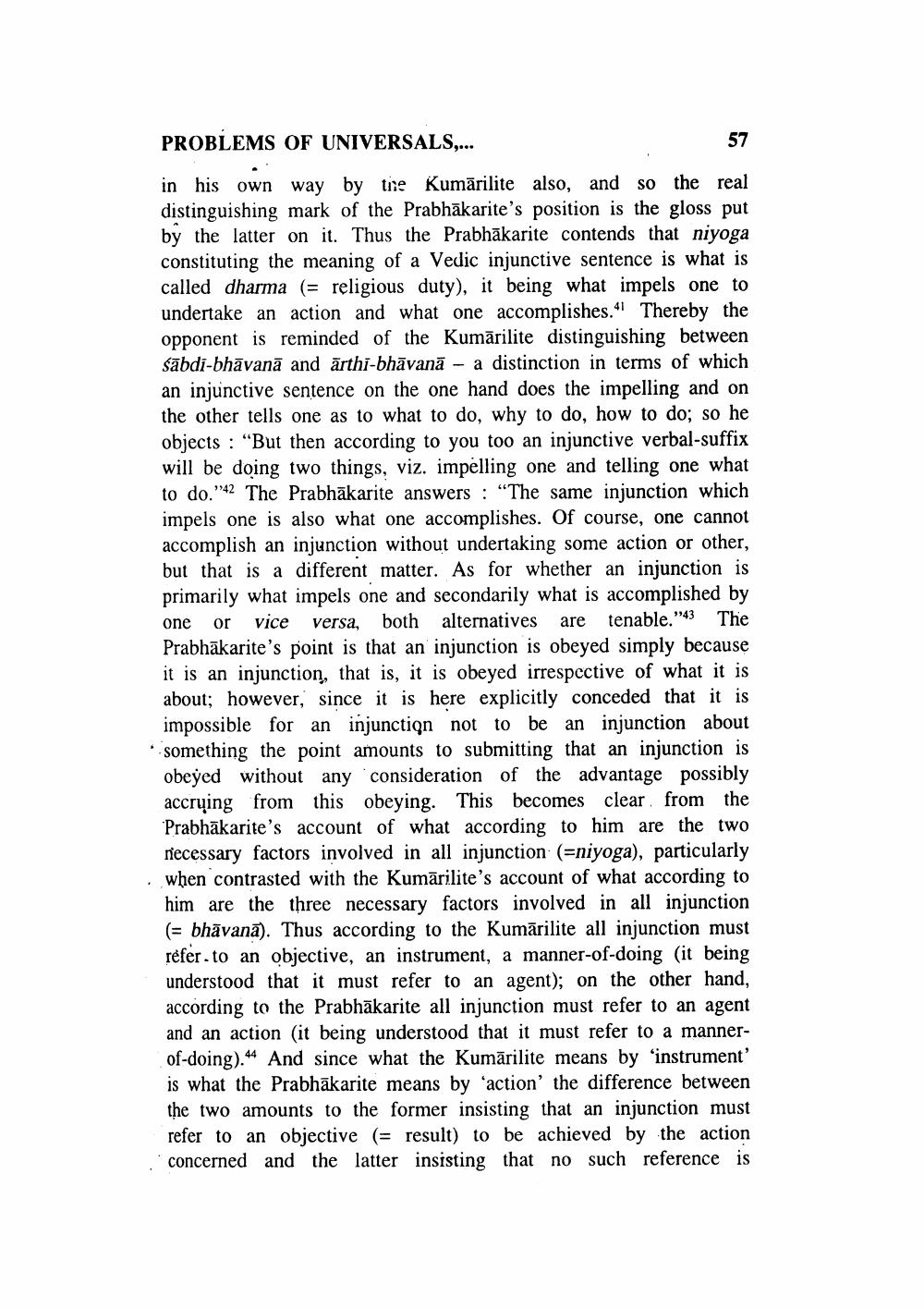________________
PROBLEMS OF UNIVERSALS....
57 in his own way by the Kumārilite also, and so the real distinguishing mark of the Prabhākarite's position is the gloss put by the latter on it. Thus the Prabhākarite contends that niyoga constituting the meaning of a Vedic injunctive sentence is what is called dharma (= religious duty), it being what impels one to undertake an action and what one accomplishes. Thereby the opponent is reminded of the Kumārilite distinguishing between Šābdi-bhāvanā and ārthi-bhāvanā - a distinction in terms of which an injunctive sentence on the one hand does the impelling and on the other tells one as to what to do, why to do, how to do; so he objects : “But then according to you too an injunctive verbal-suffix will be doing two things, viz. impelling one and telling one what to do."42 The Prabhākarite answers : "The same injunction which impels one is also what one accomplishes. Of course, one cannot accomplish an injunction without undertaking some action or other, but that is a different matter. As for whether an injunction is primarily what impels one and secondarily what is accomplished by one or vice versa, both alternatives are tenable."43 The Prabhākarite's point is that an injunction is obeyed simply because it is an injunction, that is, it is obeyed irrespective of what it is about; however, since it is here explicitly conceded that it is impossible for an injunction not to be an injunction about something the point amounts to submitting that an injunction is obeyed without any consideration of the advantage possibly accrying from this obeying. This becomes clear from the Prabhākarite's account of what according to him are the two necessary factors involved in all injunction (=niyoga), particularly when contrasted with the Kumārilite's account of what according to him are the three necessary factors involved in all injunction (= bhāvanā). Thus according to the Kumārilite all injunction must refer to an objective, an instrument, a manner-of-doing it being understood that it must refer to an agent); on the other hand, according to the Prabhākarite all injunction must refer to an agent and an action (it being understood that it must refer to a mannerof-doing).44 And since what the Kumārilite means by 'instrument' is what the Prabhākarite means by 'action' the difference between the two amounts to the former insisting that an injunction must refer to an objective (= result) to be achieved by the action concerned and the latter insisting that no such reference is




